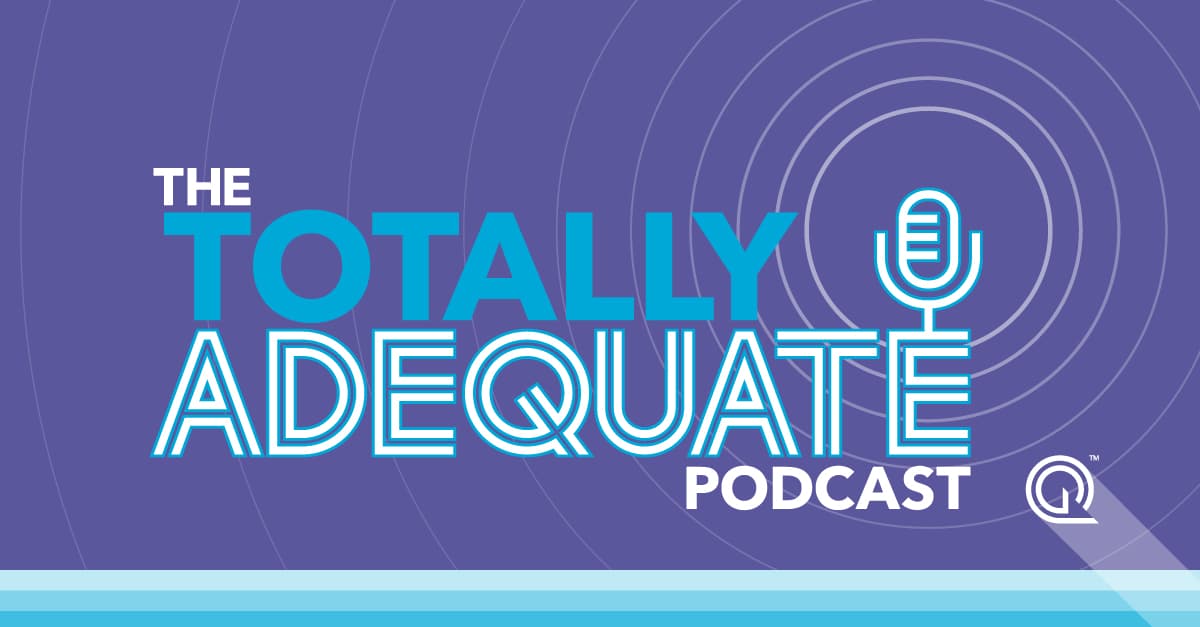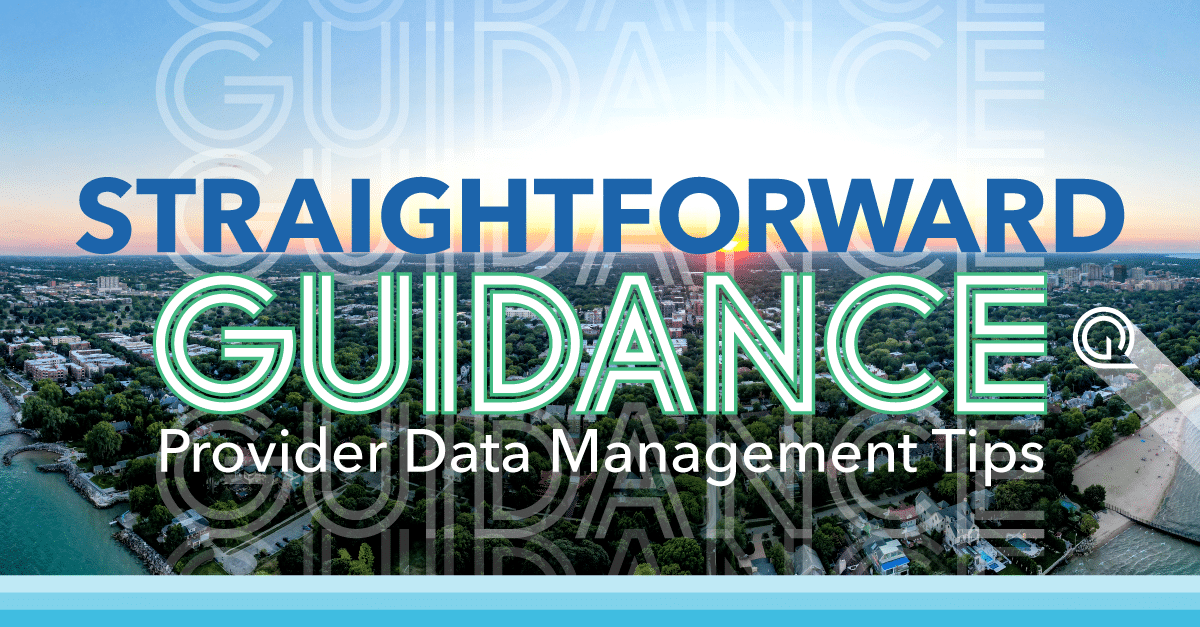Federal and state regulators, along with lawmakers, are actively amending network adequacy and provider directory accuracy requirements while intensifying oversight. These changes have far-reaching implications for medical and ancillary plans. Understanding the key developments and emerging trends is essential for stakeholders to ensure strategic alignment and maintain compliance.
Proposed Payment 2026, MCO Final Rule, MHPAEA Final Rule, and CMS Provider Directory Pilot
Get ready for 2025 with the latest insights on major health policy changes! Kate Deiters and Zach Snyder break down federal policy updates related to network adequacy and provider directory accuracy. Discover what’s changing and how you can start preparing for the new requirements.
Medicare Advantage
Medicare Advantage Organizations (MAOs) are required to verify provider information every 90 days to include specific data elements. Additionally, directories must be updated within 30 days of receiving new or corrected information.
Initial applications and service area expansions must demonstrate network adequacy for the proposed provider networks. For those using Letters of Intent to contract during the application process, a Triennial Network Adequacy Review is mandated the first year the plan is operational.
Annual Behavioral Health Services Activity Verification: To reduce ghost networks in behavioral health services, MAOs must annually verify that listed behavioral health providers—including Physician Assistants (PAs), Nurse Practitioners (NPs), and Clinical Nurse Specialists (CNSs)—have provided services to at least 20 patients in the past year.
💡 Read our blog on Behavioral Health Policies in Medicare Advantage to learn more about the requirements.
CMS Oversight: The Centers for Medicare & Medicaid Services (CMS) play a critical role in maintaining the integrity of provider directories through various compliance measures. CMS enforces ongoing adherence to standards via online directory reviews, ad-hoc audits, and other established monitoring activities. These measures are designed to guarantee that MAOs meet their obligations and that beneficiaries receive proper guidance on available healthcare options.
What to Watch: Continuous advancements in compliance mechanisms and potential revisions to annual verification requirements.
Marketplace and Exchanges
Federally-facilitated Marketplace
When it comes to the Federally-facilitated Marketplace (FFM), there has been a significant increase in provider data accuracy requirements for Qualified Health Plan (QHP) certification. For example, as mentioned in our webinar, “The Role of Adequate Health Networks in the Marketplace,” the Center for Consumer Information and Insurance Oversight (CCIIO) introduced provider data validations such as prohibiting providers from being listed at more than 10 locations or across more than 4 specialties.
💡 Download our QHP Certification Network Submission Executive Summary to learn more.
What to Watch: Developments in the CMS QHP Directory Pilot and the adoption of new calculations for time and distance measurements, known as geographic distance measurements.
State-based Exchange Alignment
State-based exchanges are now required to adopt similar network adequacy standards as those on the federal exchange, including time and distance, provider specialty lists, and network reviews. Additionally, documented outreach and attestation procedures are required to maintain provider data integrity.
What to Watch: New guidance, regulations, and proposed legislation are anticipated in 2025 to meet the 2026 deadline.
💡 Download our QHP Policy Brief or QHP Executive Summary to learn more about the new rules.
Medicaid
Medicaid programs are undergoing significant transformations at both state and plan levels. These changes are driven by new regulations that mandate the establishment of mechanisms to verify the accuracy of provider directory information.
Starting July 1, 2025, per the Consolidated Appropriations Act (CAA) and the Medicaid and Children’s Health Insurance Program (CHIP) Managed Care Access, Finance and Quality final rule, new requirements for provider directories will take effect. These regulations require Medicaid and CHIP Fee-For-Service (FFS) programs, as well as Managed Care Organizations (MCOs), Prepaid Inpatient Health Plans (PIHPs), Prepaid Ambulatory Health Plans (PAHPs), and, when appropriate, Primary Care Case Management (PCCM) entities to comply with the new rules.
While specific requirements may vary for the different Medicaid programs, several common themes emerge.
Verification of Specific Provider Directory Data Elements: This includes verifying provider contact information, specialty, cultural and linguistic capabilities, acceptance of new Medicaid patients, and network status.
Timely Updates to Searchable Electronic Provider Directories: A searchable, electronic provider directory must be updated no later than 30 calendar days after the plan entity receives updated provider information.
Quarterly and On-Demand Updates: Provider directories are to be updated at least quarterly or more frequently, as required by the state and/or Secretary of Health and Human Services.
Comprehensive Provider Outreach and Verification Processes: Plans are required to develop and deploy provider outreach and verification processes to adhere to the new standards.
What to Watch: Continued legislative changes to state-specific Medicaid network adequacy, provider data accuracy, and provider outreach frameworks.
No Surprises Act
The No Surprises Act continues to have significant implications, mandating health plans, providers, and healthcare facilities to maintain accurate provider directories and promptly notify participants about whether a particular provider is in-network. The rule requires verification processes to ensure listed providers are up-to-date, removing any unverifiable information.
Similar to Marketplaces and Medicaid, states continue to align regulations with the No Surprises Act provider directory requirements. While states may have specific requirements, here are the foundational requirements.
Provider Data Verification: Plans must implement a provider verification process. Any providers or facilities with unverifiable information must be removed from the provider directory. Plans are obligated to verify and update their provider directories at least every 90 days. Directories must be updated within two business days of receiving a provider update and respond to consumer inquiries within one business day.
💡 Explore our Provider Data Accuracy Resource Hub to find more news, videos, and best practices for complying with the No Surprises Act.
What to Watch: While the No Surprises Act went into effect on January 1, 2022, you can anticipate further state-level modifications to align with federal regulations concerning directory accuracy and verification processes.
Mental Health Parity and Addiction Equity Act (MHPAEA)
The U.S. Departments of Health and Human Services, Labor, and the Treasury issued the Mental Health Parity and Addiction Equity Act (MHPAEA) final rule, setting new network adequacy standards for payers. These rules ensure that commercial payers, including self-funded ERISA payers, provide mental health and substance use disorder benefits at the same level as medical and surgical care benefits.
NQTL Comparative Analysis: Payers must conduct Non-Quantitative Treatment Limitations (NQTL) comparative analysis for mental health parity. Directories must provide accurate and comparable information regarding mental health providers, network status, and accessibility.
What to Watch: Forthcoming technical guidance and potential enforcement actions.
The Evolving Landscape of Network Adequacy and Provider Directory Accuracy
The landscape of network adequacy and provider directory accuracy is continuously evolving, with future health policy changes anticipated to strengthen provider network oversight. Healthcare professionals, insurers, and decision-makers must stay informed about policy updates and emerging trends. By understanding and adapting to these changes, stakeholders can ensure strategic alignment, maintain compliance, and ultimately enhance the reliability and credibility of their healthcare plans and services.
Elevate Your Provider Data Accuracy with QES Accuracy
Discover how Quest Enterprise Services® (QES®) Accuracy can make a difference. Our comprehensive solutions enhance your process, offer better data transparency, reduce ghost networks, and improve compliance. Empower your organization to excel in the evolving healthcare landscape. Learn more about Quest Enterprise Services® (QES®) Accuracy today!
Related Network Adequacy and Provider Directory Accuracy Resources
Know Your Data, Grow Your Business
Get a complimentary strategy session with a Quest Analytics expert to learn how we can help you maintain network adequacy, improve data accuracy and achieve astonishing efficiencies.












